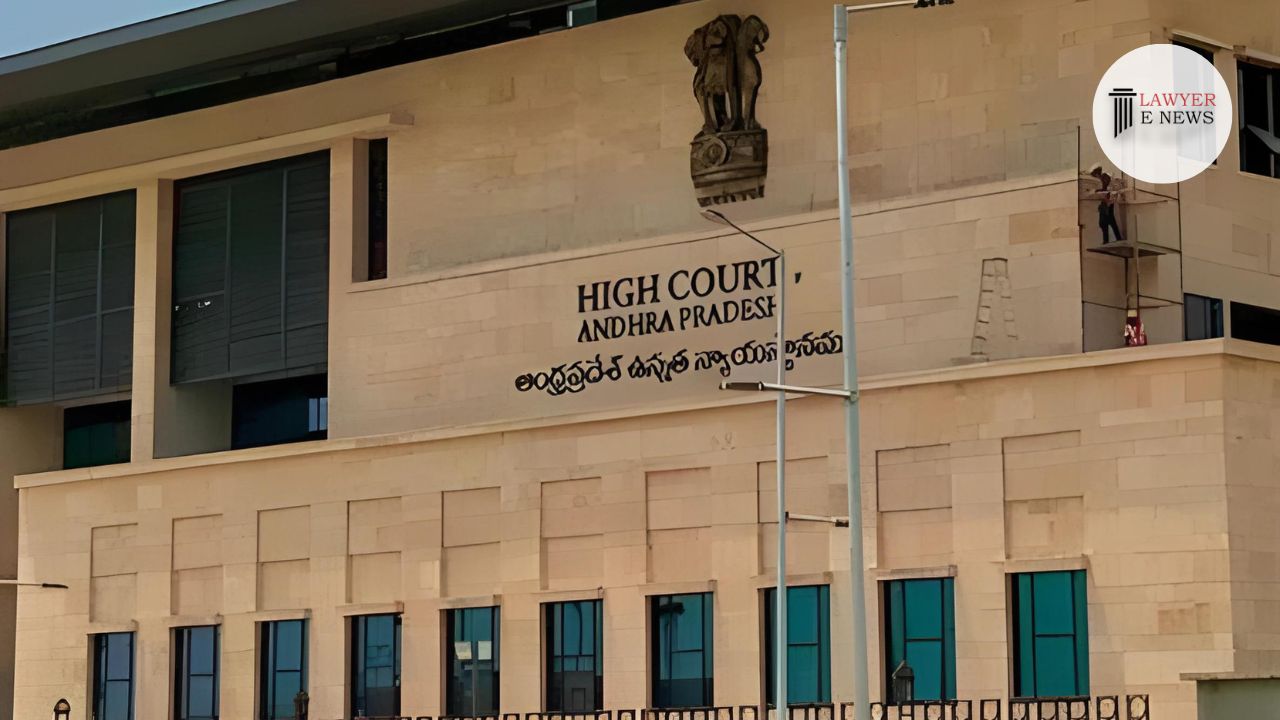-
by Admin
15 February 2026 5:35 AM



“The presence of suspicious circumstances surrounding the alleged execution of Ex.A3 will, coupled with contradictions in the witness testimonies, leads this court to conclude that the will is not genuine,” wrote Justice V. Gopala Krishna Rao in the High Court of Andhra Pradesh's ruling on Vytla Venkatarao & Vytla Varahalamma vs. Edupuganti Narayana Rao, a case involving claims of property inheritance and will forgery.
This appeal, Appeal Suit No. 80 of 2006, stems from a legal battle over the inheritance rights to two parcels of land (referred to as the A and B schedule properties) following the death of Kanaka Durga, the daughter of the plaintiffs, Vytla Venkatarao and Vytla Varahalamma. The appellants argued that these lands, especially the A schedule property, were purchased in their daughter's name but belonged to them.
The plaintiffs' claim hinged on a will (Ex.A3) allegedly executed by Kanaka Durga in June 1998, bequeathing the land to them. They sought a declaration of ownership of the land and possession, as well as rights to the profits from the property. The defendants, including Kanaka Durga's husband Edupuganti Narayana Rao, disputed the authenticity of the will and asserted that Kanaka Durga had died intestate, making her husband the rightful heir under the Hindu Succession Act.
The plaintiffs presented Ex.A3, a will purportedly signed by Kanaka Durga on June 26, 1998, a few weeks before her death. The will transferred the property to her parents, citing concerns about her health. However, the defendant challenged the validity of the will, alleging that it was forged since Kanaka Durga had been in a coma from June 25, 1998, due to meningitis and could not have signed any legal documents during that period.
The plaintiffs argued that the will was valid, calling witnesses (PW3 and PW4) who attested to the document. They maintained that the land was purchased using their funds, despite it being registered in their daughter’s name.
The trial court had dismissed the plaintiffs’ claims, leading to the appeal before the High Court.
Justice Gopala Krishna Rao's judgment focused on several suspicious aspects of the case:
Contradictions in Testimonies: The court found inconsistencies in the testimonies of the plaintiffs' witnesses. PW3, a passerby, claimed to have been randomly invited to witness the will, while PW4 admitted he was not invited to act as a witness but signed the document by accident. These contradictions cast serious doubt on the authenticity of the will.
Medical Evidence: The medical evidence presented by the defendant was critical. According to hospital records, Kanaka Durga had been admitted to a hospital in Tanuku from June 24 to June 30, 1998, suffering from a serious illness that left her unconscious for most of this period. This directly contradicted the claim that she executed the will on June 26 at her parents' house in Penikeru, 60 kilometers away.
Unexplained Exclusion of Husband: The court noted that the will did not mention why Kanaka Durga’s husband was excluded from inheriting the property. This omission, coupled with the fact that the couple had lived together for nearly a decade, was another suspicious circumstance that the plaintiffs failed to adequately explain.
Doubts About Notarization: The notarization of the will on June 27, 1998, at Kakinada, was also suspect. Given Kanaka Durga’s critical condition, it seemed implausible that she could have traveled such a long distance to complete this step.
The judgment cited several precedents from the Supreme Court of India, emphasizing the high burden of proof required in cases involving contested wills, especially when surrounded by suspicious circumstances. The court referred to rulings in Rani Purnima Debi vs. Kumar Khagendra Narayan Deb and Kavita Kanwar vs. Pamela Mehta, where courts refused to uphold wills due to unexplained exclusions of close family members and contradictions in witness statements.
In this case, the plaintiffs failed to dispel the doubts raised by the defendant and the medical evidence. The suspicious circumstances surrounding the preparation and execution of the will, including Kanaka Durga’s health at the time, weighed heavily against the plaintiffs.
The court dismissed the appeal, affirming the trial court’s decision. It concluded that the plaintiffs could not prove the validity of the will or their entitlement to the land. The judgment reiterates the principle that the burden of dispelling doubts surrounding a will lies squarely with those who present it.
The ruling sets an important precedent for cases involving disputed wills and inheritance under the Hindu Succession Act, highlighting the necessity of clear, convincing evidence in proving the legitimacy of a will.
Date of Judgment: September 10, 2024
Vytla Venkatarao & Vytla Varahalamma vs. Edupuganti Narayana Rao
